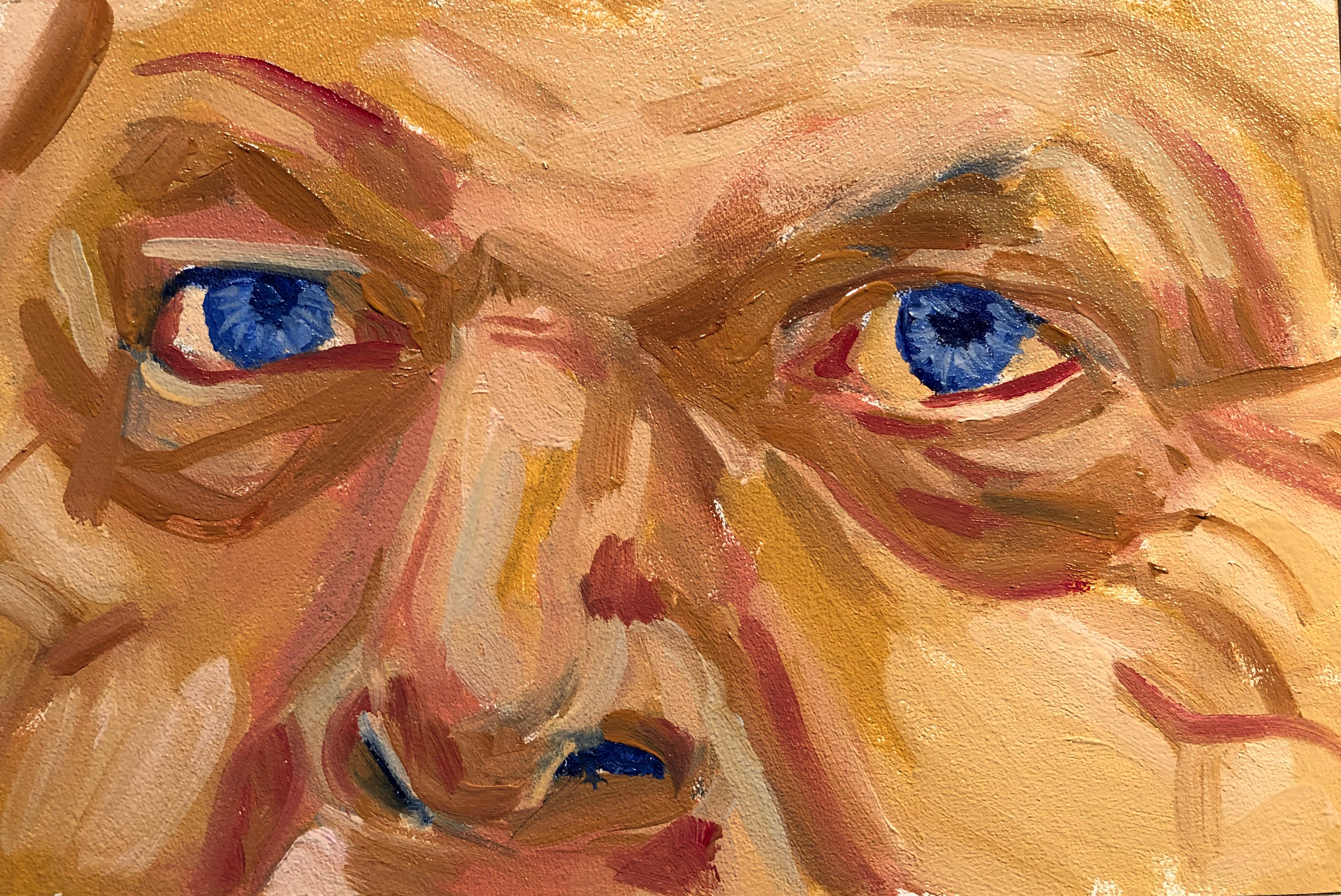This week at work was, well, the puckered end of an ugly dog, and I’d considered hiding in bed rather than seeing Brown Bird at The Ark. I am glad I made the effort because the show revived my trampled spirit. Going into the show, all I really knew was that Brown Bird smoked through their set at the Ann Arbor Folk Festival. Their tone was dark; their music serious. These were no bullshit performers and I was hooked.
The warm-up band One Bad Tooth did not suck, no not at all, though an annoying buzz haunted their set like a drunken heckler. Their frontman was hip and jovial, introducing band members as “that guy, oh and that guy” when they joined him onstage. Instrumentation was a finger plucked hollow body guitar, a fiddle and a banjo and drums. As I told them in the merch area after the show, I don’t usually like bands with drummers but theirs, heck, I didn’t mind. They managed a nice interplay of textures on their pieces, melody overlaid with haunting obligato and churning rhythm underneath. Good stuff so check them out on BandCamp:
Brown Bird were a simply revelation. David Lamb and MorganEve Swain worked as true duo complementing each other’s performance with a bit of percussion here, a subtle line of harmony there and throughout a sense of mastery and freshness. It was like witnessing a high level musical conversation between two fully engaged participants. Their stage presence was friendly and warm without being chatty.
And they rocked. Performers like Brown Bird who display an innate sense for complex rhythms form the basis for my snarky prejudice against drummers, noted earlier. Their pieces were driving, rocking at times but never quite predictable. I wasn’t the only audience member dancing in my seat, so to speak. I get the same egghead pleasure listening to Brown Bird that I get from “math rock,” those brainiac metal bands who obsess over weird time signatures. Let me be clear: this is high praise.
But their beats weren’t their only innovation. The melodies were dark and intriguing. MyDearPatner asked later if all their music was minor and I had to say, they were minor, modal and everywhichway in between. I’ve forgotten all that music theory my grade-school piano teacher tried to impart so I can’t explain why but the melody lines were captivating, intriguing, like something barely overheard, “what was that again?”
I realize it’s a strange thing for a writer to admit but lyrics are quite literally the last thing I notice in music. Brown Bird’s songs, however, seem crafted and intentional. Repetition supports the meaning rather than merely extending the running time. After the week of drama and trauma at my workplace, might I note that I particularly enjoyed “Fingers to the Bone” off their Salt for Salt album. These feel like songs unearthed from a family crypt on an old stone-clotted farm, both timeless and vital.
I grabbed three of their discs after the show since I’ll want to re-play these memories for quite awhile. Even better, I got a poster of the gloriously surreal cover image from their latest, Fits of Reason. On Monday morning, I will drive the point of a thumbtack into the drywall of my cubicle and unfurl this poster like declaration, fair notice to all co-workers and managers alike: Don’t Tread on Me. Or at least, with Brown Bird playing in my earbuds, I’ll make it through another week.
